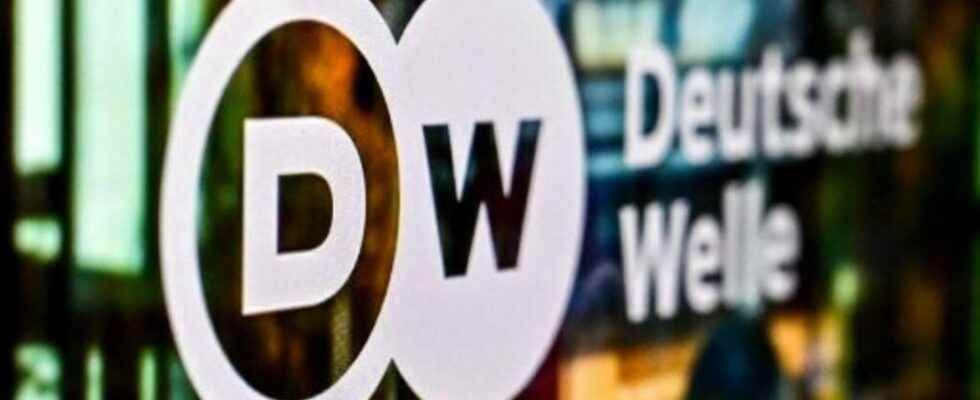Russia ordered this Thursday, February 3, the closure of the local office of the German international radio and television station Deutsche Welle, in retaliation for the ban on the Russian channel RT from broadcasting in Germany.
The reprisals promised by Moscow after the banning of the RT channel in German were not late. The ” retaliatory measures » imply the « office closing ” local of Deutsche Welle, the “ decertification of all employees from this office and the interruption of the broadcast of this media on Russian territory.
The Russian Ministry of Foreign Affairs has also announced the launch of a procedure aimed at recognizing Deutsche Welle as a “foreign agent”, an infamous and controversial qualifier already applied to several Russian media critics of the power.
According to Moscow, sanctions are also planned against “ representatives of German state and public structures involved in the restriction of the broadcast of RT “, channel which promotes in particular the position of the Kremlin abroad. The Russian authorities specified that these measures were part of a ” first stage “, promising an additional answer” in proper time “. Hours earlier, Kremlin spokesman Dmitry Peskov blasted the German regulator’s broadcast ban on RT as ” violation of freedom of expression “.
“ Unacceptable »
This ban, a first for a major Western media in post-Soviet history, is unacceptable, German Culture and Media Minister Claudia Roth reacted on Thursday. She pointed out that RT in German was broadcasting “ without a license and did not ask for permission unlike Deutsche Welle in Russia. The president of DW, Peter Limbourg, for his part denounced in a press release a “ absurd reaction ”, which has not yet been officially notified. “ The measures of the Russian authorities are incomprehensible and excessive “, he criticized.
On Wednesday, Moscow also promised punishment for online platforms that ” arbitrarily and unjustifiably deleted accounts from the channel “, an apparent reference to the American giant YouTube, which on December 16 suspended the German account of RT on the day of its commissioning.
The channel’s satellite broadcast in Germany was discontinued soon after. German regulator ZAK banned the broadcast of RT Deutsch on its website and mobile app, arguing that “ the necessary authorization “has been” neither requested nor granted “. Moscow believes that this decision is actually “ motivated by political considerations “.
Tensions
This affair comes in the midst of a crisis between Moscow and the West over Ukraine, which fears a Russian invasion, and while Russia and Germany have seen their relations deteriorate in recent years around the opponent Alexeï Navalny and delays in the commissioning of the Nord Stream 2 gas pipeline between the two countries.
For the past 30 years, the Kremlin has been careful not to attack foreign media, while the Russian media sector has been brought to heel since Vladimir Putin took over the country in 2000. But as As relations with Westerners worsened, this policy evolved, including the expulsion of a BBC journalist and a Dutch reporter in 2021.
The RT channel, inaugurated in 2005 under the name “Russia Today”, is financed by the Russian state. It developed into several languages, but caused controversy in several countries. In the United States, she is registered as a “foreign agent”. In the UK, the authorities threatened to withdraw its broadcasting license. In France, it is widely accused by the authorities of being a Kremlin disinformation tool. The channel has also been banned in several countries, including Lithuania and Latvia.
(With AFP)
